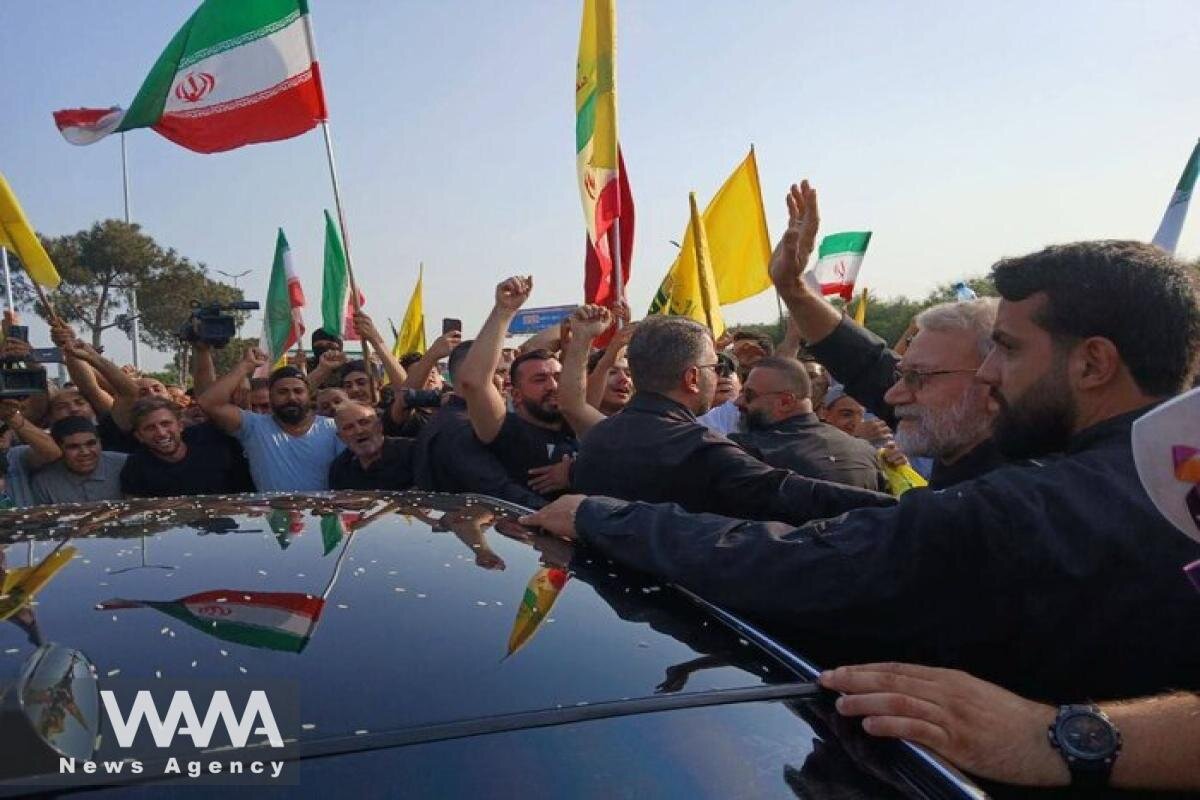Sit-in before Iranian embassy in Lebanon to seek Iran’s help for reconstruction

BEIRUT — At a time when some Lebanese politicians are racing to repeat Washington’s narratives about the “Iranian occupation of Lebanon,” the people of the border villages in the South are presenting the exact opposite picture: The residents of the border villages staged a sit-in in front of the Iranian embassy in Beirut, not to protest against it, but to seek Iran’s assistance to return to their villages from which they were displaced by repeated Israeli attacks.
They wanted to send a direct message to Supreme Leader of the Islamic Revolution Ayatollah Seyyed Ali Khamenei, because they know that Iran is only party that has not abandoned them for four decades.
The protesters made it clear: The Lebanese state is purposely absent, and the authorities are either impotent or complicit, while Iran has always stood by the oppressed and deprived in the South, the Bekaa, and every piece of Lebanese territory afflicted by the occupation regime of Israel.
Since 1982, when Israel invaded Lebanon and official Arab and international silence prevailed, Iran was the first to extend a helping hand to the resistance fighters and villagers.
From that tumultuous period of events and pressures, the resistance was born, which liberated the South in 2000 and established the deterrence equation in 2006.
This resistance, without Iran’s sincere support, would not have been able to withstand the most powerful military in the region.
Nevertheless, the mercenaries of the American spy den (the embassy) in Beirut insist on promoting a distorted narrative, portraying Iranian support as an occupation and the resistance as a burden.
They turn a blind eye to the actual occupier that makes nearly daily assaults on Lebanon by drones. Western embassies are also complicit in this occupation as they impose financial, economic, and security policies on Lebanon.
The truth is that they are not defending “Lebanon’s sovereignty,” as they claim, but rather their privileges linked to Washington’s approval!
The U.S. embassy in Beirut has for years become a management center for Lebanese affairs, controlling aid, banking decisions, and military appointments. It also imposes political conditions that undermine the country’s core independence.
But Iran has not imposed a single condition on Lebanon in exchange for its support for the resistance or those affected by the wars.
On the contrary, Iran’s assistance has been without political compensation, driven by a principled stance of supporting the oppressed and rejecting occupation.
The sit-in by residents of border villages was not a passing phenomenon; rather, it was a profoundly significant political event.
It reflects the collapse of popular confidence in the Lebanese authorities, who abandoned the people of the South and left them in the open after destroying their homes.
These people found no refuge in their own country, nor did they find anyone in the international community who would listen to their voices. So, they turned to a party they know will not let down an ally or compromise on just causes.
There is a common sentiment among the Lebanese that “Iran has never abandoned us, and it will never abandon us.” The Lebanese have realized that Iranian support has never been a tool of domination, but rather a guarantee of survival.
In contrast, the Lebanese authorities insist on their own policies, which amount to collective punishment against their own citizens. They refuse to receive Iranian planes carrying aid, prevent the entry of relief supplies, and obstruct reconstruction projects that Tehran has offered to fund unconditionally.
All of this is to please Washington, which uses sanctions and intimidation to keep Lebanon in a state of constant state of deprivation.
Nevertheless, the Lebanese have come to realize that their salvation does not come from the International Monetary Fund or the promises of embassies, but from building genuine partnerships with those who have proven their sincerity and ability on the ground.
Iran was and remains the only party that has provided Lebanon with what no one else has: military support that has enabled the resistance to protect the borders, humanitarian support during crises, and a constant readiness for reconstruction.
Undoubtedly, their message to Ayatollah Khamenei will reach us, just as the messages of the resistance fighters did. The Lebanese find in Iran a warm breath that does not change with the shift in interests.
Iran, which stood with the South at the height of the war, will now stand with the displaced villagers. While the mercenaries of the U.S. embassy hurl accusations, Iran continues to work silently and faithfully, proving once again that it is the true savior, not the occupier.
